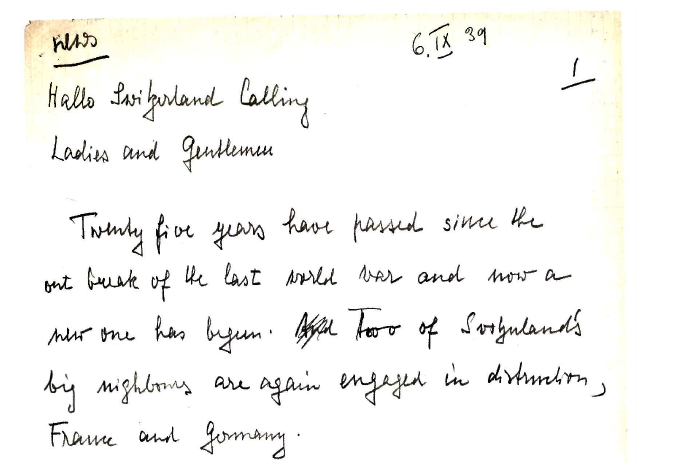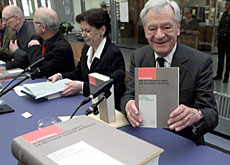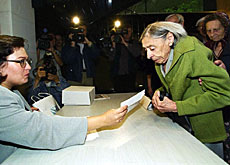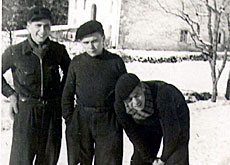How we reported the outbreak of the Second World War

To mark the 80th anniversary of the outbreak of the Second World War, we dug into our archives to see how our predecessors at Switzerland's Short Wave Service reported the dramatic events of September 1939.
Our predecessors used radio signals to reach their audience. Unfortunately, no audio recordings of broadcasts from August and September 1939 survived in our archives, but we did find the transcripts, some handwritten, of our broadcasts in German, French and English.
Here’s our English-language broadcast that announced the outbreak of the war:
“Hallo Switzerland Calling
Ladies and Gentlemen,
Twenty-five years have passed since the outbreak of the last world war, and now a new one has begun. Two of Switzerland’s big neighbours are again engaged in destruction, France and Germany.
Switzerland, the little peaceful nation at the heart of the continent, has proclaimed its absolute decision of neutrality. It did so true to its mission which is to guard the mountain passes connecting Germany to the Mediterranean countries, Western Europe to the Danubian basin.”
The broadcaster then reads the government’s declaration of neutrality in the conflict and adds assurances that Switzerland would defend its sovereignty.
“Successively, the troops covering the frontiers and then the entire army had been mobilised. The general mobilisation began Saturday, Sept. 2 and was completed Sunday, Sept. 3 at noon.”
The broadcast ends with the statement: “Switzerland in every occasion can and will protect its neutrality.” The handwriting gets clumsier towards the end of the transcript and harder to read. You can download it in its entirety hereExternal link.
A note suggests that it was broadcast on September 6, 1939, a full five days after the invasion of Poland by German troops. The reason for the late broadcast is unclear.
Unlike today, our predecessors’ short wave radio broadcasts were redacted by censors and were meant to reflect the government’s official positions. Short wave radio was the government’s preferred means for communicating with its expatriated citizens and to present its positions to the rest of the world.
The service proved to be popular among a wider audience because it provided relatively neutral information on the war.
The archives have been digitised and are accessible to researchers and the public via an online databaseExternal link.
We at swissinfo.ch have in recent years looked extensively at Switzerland’s complex role in the Second World War. Here are some of recent articles that you might also find of interest:
The government’s policy of turning away desperate Jews at the Swiss border was controversial at the time and was far from being universally accepted in the country, archive documents show.
During the war, the Allies repeatedly bombed Switzerland by mistake. More than 250 aircraft crashed or made emergency landings in Switzerland during the war.
Every year the Swiss army sells off around 20 properties it no longer requires. Swiss television, RTS, went along to a viewing of a wartime bunker.
The images and explanations below outline how the Swiss Short Wave Service reported on the Second World War at the beginning and throughout the conflict. They are based on manuscripts of news bulletins that were studied by a group of history students at Lausanne University in 2012.

In compliance with the JTI standards
More: SWI swissinfo.ch certified by the Journalism Trust Initiative




You can find an overview of ongoing debates with our journalists here. Please join us!
If you want to start a conversation about a topic raised in this article or want to report factual errors, email us at english@swissinfo.ch.